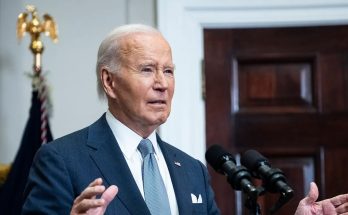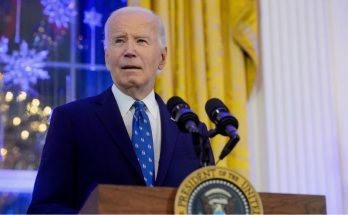Stephen Colbert wasn’t supposed to succeed on ‘The Daily Show’—at least, not
in the way he did. His razor-sharp wit made him a standout, but behind the
laughter was relentless pressure to meet sky-high expectations, nearly pushing
him to his limits. Did his satirical persona blur the lines between comedy and
reality, even for him? And what critical moment led Jon Stewart to recognize
Colbert’s potential and let him take the leap?

At 60, Stephen Colbert remains one of the most influential figures in political
satire and late-night television. His decision to leave The Daily Show marked a
turning point in his career and set him on a path that would redefine his legacy.
While Colbert’s tenure on The Daily Show solidified his comedic talents and
introduced audiences to his unique voice, the bold decision to step away revealed
his willingness to take risks, embrace change, and trust in his ability to connect
with viewers on new platforms.
Stephen Colbert joined The Daily Show in 1997 during its formative years under
Craig Kilborn’s tenure. At the time, the show focused on pop culture rather than
the sharp political commentary for which it later became known. Fresh from
Chicago’s improv scene, Colbert found himself in a competitive and
high-pressure environment. His talents were undeniable, but it took time for him
to carve out a space for himself. By 1999, when Jon Stewart became host, the
show began to pivot toward its iconic mix of satire and political critique, allowing
Colbert to shine.
Colbert’s genius lay in his ability to adopt a satirical persona that blurred the lines
between comedy and commentary. His character—an overconfident,
conservative pundit—was a “high-status idiot,” as Colbert described it. This role
became the foundation for some of the show’s most memorable moments,
including the Even Stevphen debates with Steve Carell and the hilariously absurd
This Week in God segments. These sketches not only showcased Colbert’s
razor-sharp wit but also highlighted his deep understanding of current events and
his knack for turning serious issues into comedy.
By 2005, Stephen Colbert had become one of the brightest stars on The Daily
Show, winning multiple Emmy Awards and earning widespread acclaim. Despite
his success, Colbert began to feel constrained by the format. He wanted to
explore his character further and take on greater creative challenges. Jon
Stewart, recognizing Colbert’s potential, encouraged him to step out on his own.

This led to the creation of The Colbert Report, a spin-off that debuted on October
17, 2005. The show was a satirical masterpiece, with Colbert fully embodying his
conservative pundit persona to mock the absurdities of media and politics. It was
a bold move for Colbert, as leaving the comfort and security of The Daily Show
for an entirely new project was a significant gamble. However, the risk paid off, as
The Colbert Report became a cultural phenomenon and cemented Colbert’s place
as a late-night icon.
During its nine-year run, The Colbert Report redefined political satire. Through
segments like “The Word,” where Colbert hilariously contradicted his on-screen
text with spoken arguments, and “Better Know a District,” which poked fun at
congressional representatives, the show delivered biting critiques of American
politics and media. Colbert’s creation of terms like “truthiness” even influenced
the cultural lexicon, highlighting the absurdity of believing something “because it
feels true.”
Colbert’s performance at the 2006 White House Correspondents’ Dinner, where
he delivered scathing satire directly to President George W. Bush, solidified his
reputation as a fearless and influential voice. The event became legendary for its
unapologetic critique of power, showcasing Colbert’s ability to balance humor
with hard truths.
After The Colbert Report ended in December 2014, Stephen Colbert faced a new
challenge: replacing David Letterman as host of CBS’s The Late Show. The
transition was daunting. Colbert had spent nearly two decades performing as a
character, and now he would have to step into the spotlight as himself.
Premiering on September 8, 2015, Colbert’s version of The Late Show was a
departure from Letterman’s format. While it maintained traditional elements like
celebrity interviews and comedy sketches, Colbert infused the show with his
signature political edge. His sharp monologues and thought-provoking interviews
attracted a loyal audience, particularly during the 2016 presidential election and
the turbulent political years that followed.
Despite initial ratings struggles, Colbert found his footing, and by 2017, The Late
Show became the most-watched late-night program in the United States. His
ability to adapt while staying true to his comedic roots proved his versatility as a
performer and host.

Throughout his tenure on The Late Show, Colbert faced both personal and
professional challenges. In 2020, he revealed his struggles with vertigo, a
condition that added complexity to his demanding schedule. The COVID-19
pandemic also disrupted late-night television, forcing Colbert to film episodes
from his home. Despite these obstacles, Colbert continued to innovate,
connecting with audiences in new and meaningful ways.
His resilience was further tested in 2023 when he underwent emergency surgery
for a ruptured appendix during a show taping. Colbert’s humor and
professionalism shone through as he navigated these health crises, endearing
him even more to his fans.
As Stephen Colbert celebrates his 60th birthday, his journey serves as a
testament to the power of reinvention and authenticity. From his early days on
The Daily Show to his groundbreaking work on The Colbert Report and his
transformation of The Late Show, Colbert has consistently pushed boundaries
while staying true to his values.
Colbert’s ability to evolve—both as a performer and as a person—has kept him
relevant in an ever-changing entertainment landscape. His sharp wit, intellectual
depth, and genuine warmth have made him a beloved figure in comedy and
beyond. At 60, Colbert continues to challenge conventions, proving that comedy
can be both thought-provoking and deeply human.



